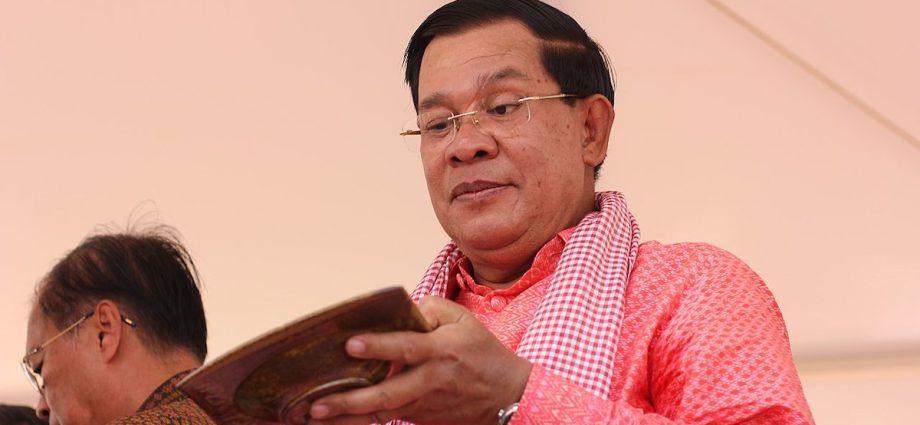
On July 23, Cambodia will witness another historical milestone, the seventh quinquennial national election.
This election further reflects the peaceful democratization in Cambodia based on the rule of law.
Cambodia is a rare example among post-conflict nations in three aspects.
First, it is among the few post-conflict countries that did not fall back into civil war.
From a historical perspective, peace is the most important prerequisite for Cambodia as it continues to develop into one of the most successful post-conflict nations. Many nations, such as Afghanistan, Congo, Haiti, Lebanon, Somalia, Sierra Leone, and Sudan, that received United Nations peacekeepers in the 1990s are still in conflict.
In contrast, since the UN-brokered election in 1993, Cambodia has been generally peaceful without large-scale conflict.
After the integration of the remaining Khmer Rouge forces in late 1998 through the “win-win” policy of Prime Minister Hun Sen, Cambodia united its national army for the first time. That was key to eliminating a structure of violence that had existed in Cambodian politics for a long time.
For instance, until late 1998, Cambodian political parties still controlled different factions of the army, and therefore the system provided room for violence when different parties could not reconcile their differences. The clash in July 1997 was the prime example of armed struggle between troops that were loyal to the Cambodian People’s Party (CPP) and the FUNCINPEC party.
Therefore, for a country like Cambodia, achieving unity of the national army cannot be underrated in terms of its contribution to peace.
It is important to note that all previous Cambodian governments had never been able to control the whole national army, and to occupy the whole sovereign territory without guerrilla forces or autonomous regions.
Constitution supports democracy
Second, Cambodia’s democratization is peaceful and irreversible.
According to Article 153 of the constitution, revisions or amendments affecting the system of liberal and pluralistic democracy and the regime of the constitutional monarchy are prohibited.
Despite criticism, Cambodia continues to organize regular elections without fail, and it does not appear that it will stop holding elections and adopt a different form of government.
One should not make haste to demand a complete democratization in a few decades of a postwar country like Cambodia. It takes time for the whole social system to adapt. It takes time for people to understand how to distinguish between the rights and the duties of citizens.
Some people only demand their rights, but they don’t really understand their civilian duties to respect the law. For political parties that have experienced only armed struggles and mutual elimination, it takes time to ensure that the culture of dialogue can take root.
Freedom of expression and political freedom should not be promoted to the level that democracy becomes an excuse for extremism and populism.
Cambodia pursues democracy that is adaptable to the Cambodian historical context, cultural identity, and Buddhism, which strongly respects peaceful co-existence and tolerance. Even if Buddhism is the state religion, Cambodia’s religious harmony stands out in the region and the world. Christianity and Islam can be practiced freely in Cambodia without discrimination, and there are no religious riots.
The elimination of foreign intervention in domestic politics and the democratization process is also a key trait of Cambodian politics. Cambodia has been firm in pursuing a peaceful democratization based on its own sovereign choice while strongly rejecting foreign intervention and interference in domestic affairs. The case of Kem Sokha is a case in point.
Cambodia is unapologetic for its own ways of democratization. After all, even the United States has over two hundred years of democratic history, the recent violence at Capitol Hill is not something that democratic countries aspire to. The US rejection of foreign influence in its election is nothing different from the Cambodian case.
Economic progress
Third, Cambodia has attained high-level economic growth with a significant contribution to poverty reduction and improvement of people’s well-being including protection and promotion of fundamental human rights.
With peace and stability, Cambodia’s economy grew at an average annual rate of 7.7% between 1998 and 2019, making it one of the fastest-growing economies in the world. As a result, poverty has been drastically reduced and Cambodia has made considerable strides in improving health outcomes, early childhood development, and primary education in rural areas.
Life expectancy at birth and maternal, under-five, and infant mortality rates improved significantly between 2000 and 2021.
This is something that developing countries in the world want in the first place.
As a matter of fact, not many post-conflict nations have the above three elements altogether for a sustained period like Cambodia.
Sometimes countries have peace and development, but their government is not inclined to adopt a democratic system. Sometimes countries have democracy, but their domestic politics is messy, their society is not peaceful, and the economy stagnates.
Therefore, to look at Cambodia’s democracy, one should step back a bit and view it from an international comparative perspective instead of a fixed paradigm and prejudice.
Cambodia is confident to say that it has done well in its own way considering its tragic past. Democracy is a process and not an end.
Cambodia has started gradually to transform itself into a society with positive peace that seeks to settle political differences through “ballots instead of bullets.” This is a great transformation for a country like Cambodia that had experienced endless bloodshed and great miseries for the people.
There is no looking back for Cambodia’s democracy. Cambodia will only move forward.

